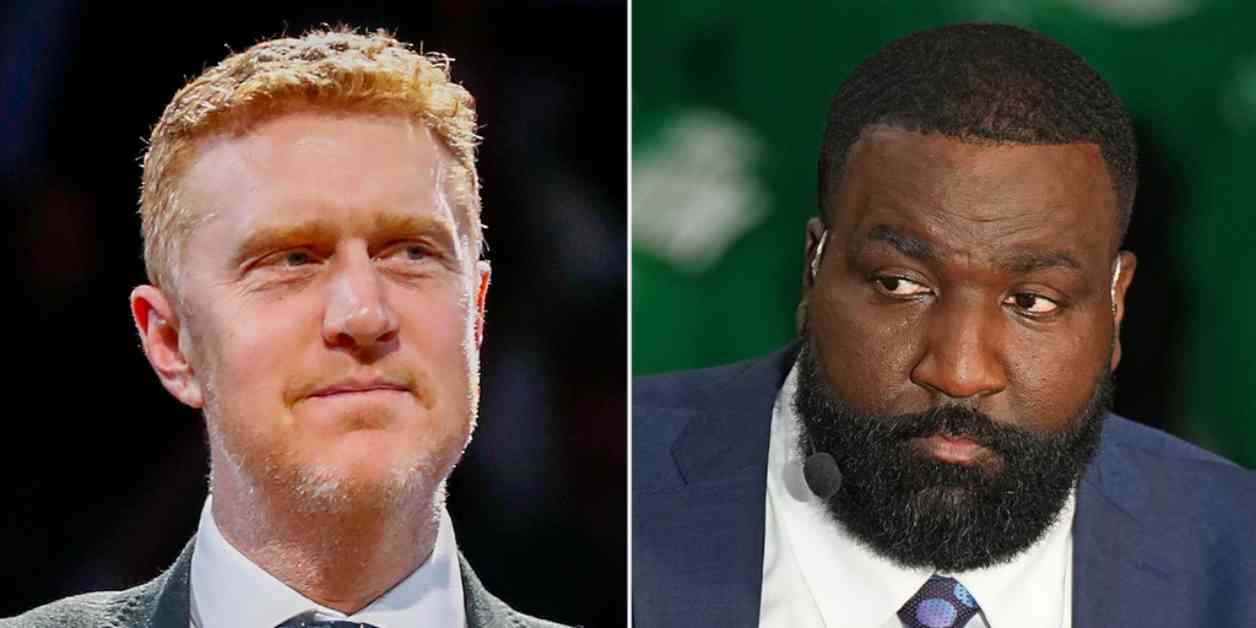Former Boston Celtics teammates Kendrick Perkins and Brian Scalabrine, who were both part of the 2008 championship-winning team, are currently embroiled in a public feud. The disagreement stemmed from Scalabrine claiming that Perkins was intentionally not invited to the recent celebration with the team after the Celtics’ victory over the Dallas Mavericks.
Scalabrine made these comments on his SiriusXM show, stating that there was a lack of open-arms reception for Perkins. In response, Perkins expressed his disappointment with Scalabrine’s remarks, labeling him a “coward” for not addressing the issue privately. Perkins also mentioned that he was not the only member of the 2008 team missing from the celebration, highlighting that several other players were also absent.
Despite the apparent snub, Perkins clarified that declining a potential invite had nothing to do with his feelings towards Boston or the Celtics. He emphasized that the current moment belonged to the new generation of players and that he would have likely declined the invitation even if it had been extended to him.
The situation escalated further when Scalabrine failed to return Perkins’ calls as promised, leading Perkins to feel that he was being avoided. The lack of communication between the two former teammates has only fueled the public dispute, with Perkins expressing his frustration at the perceived avoidance by Scalabrine.
Both Perkins and Scalabrine transitioned into media roles following their playing careers, with Scalabrine working as a Celtics analyst and Perkins covering the NBA for ESPN. The ongoing feud between the two former teammates has garnered attention from fans and media outlets, shedding light on the complexities of relationships within professional sports.
As the debate continues to unfold, it serves as a reminder of the intricacies of camaraderie and communication in the world of sports. The public nature of the dispute highlights the challenges that can arise when personal dynamics intersect with professional relationships, underscoring the importance of open dialogue and mutual respect.
While the specifics of the disagreement between Perkins and Scalabrine remain unresolved, the incident offers valuable insights into the dynamics of team dynamics and the enduring impact of shared experiences in professional sports. As the story continues to develop, it serves as a compelling narrative of friendship, rivalry, and the complexities of human relationships in the world of sports.


















